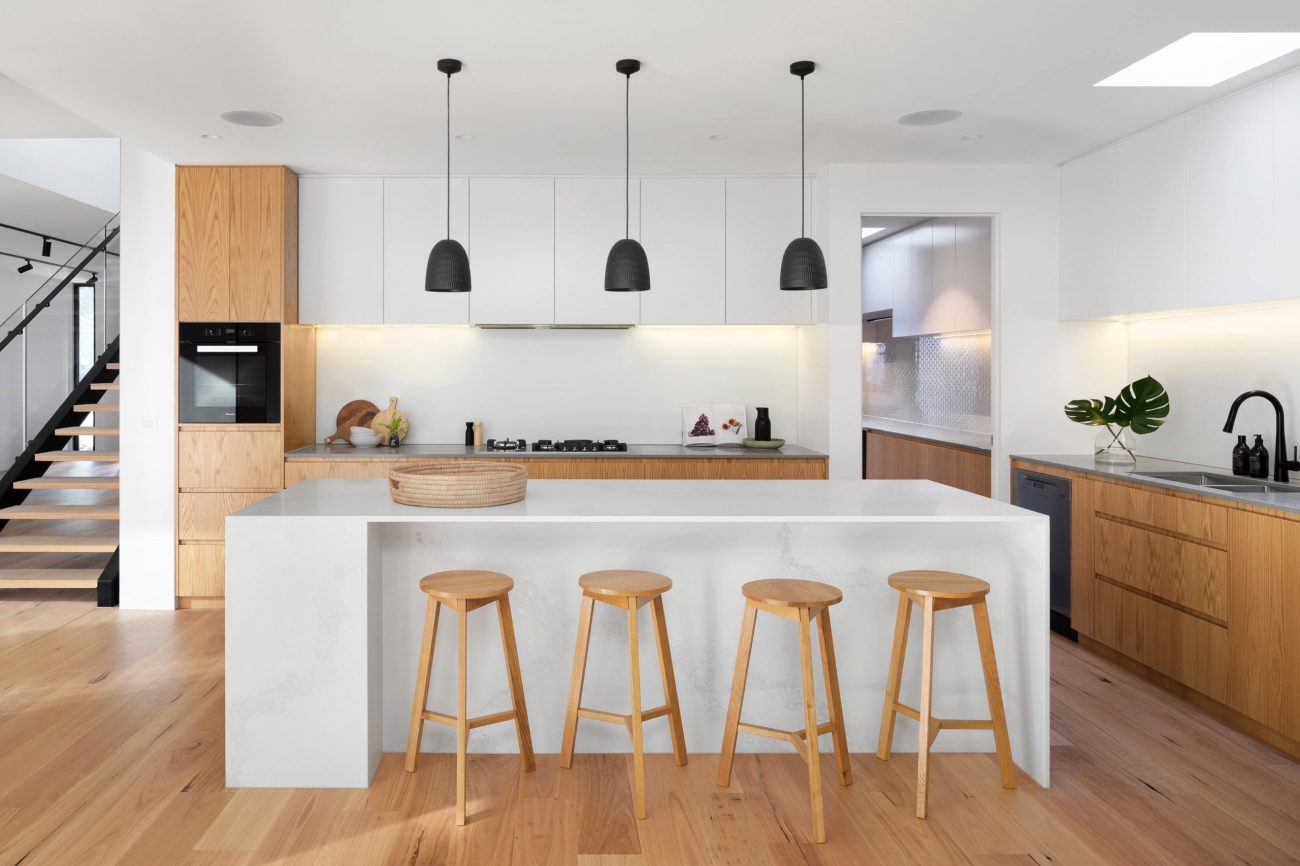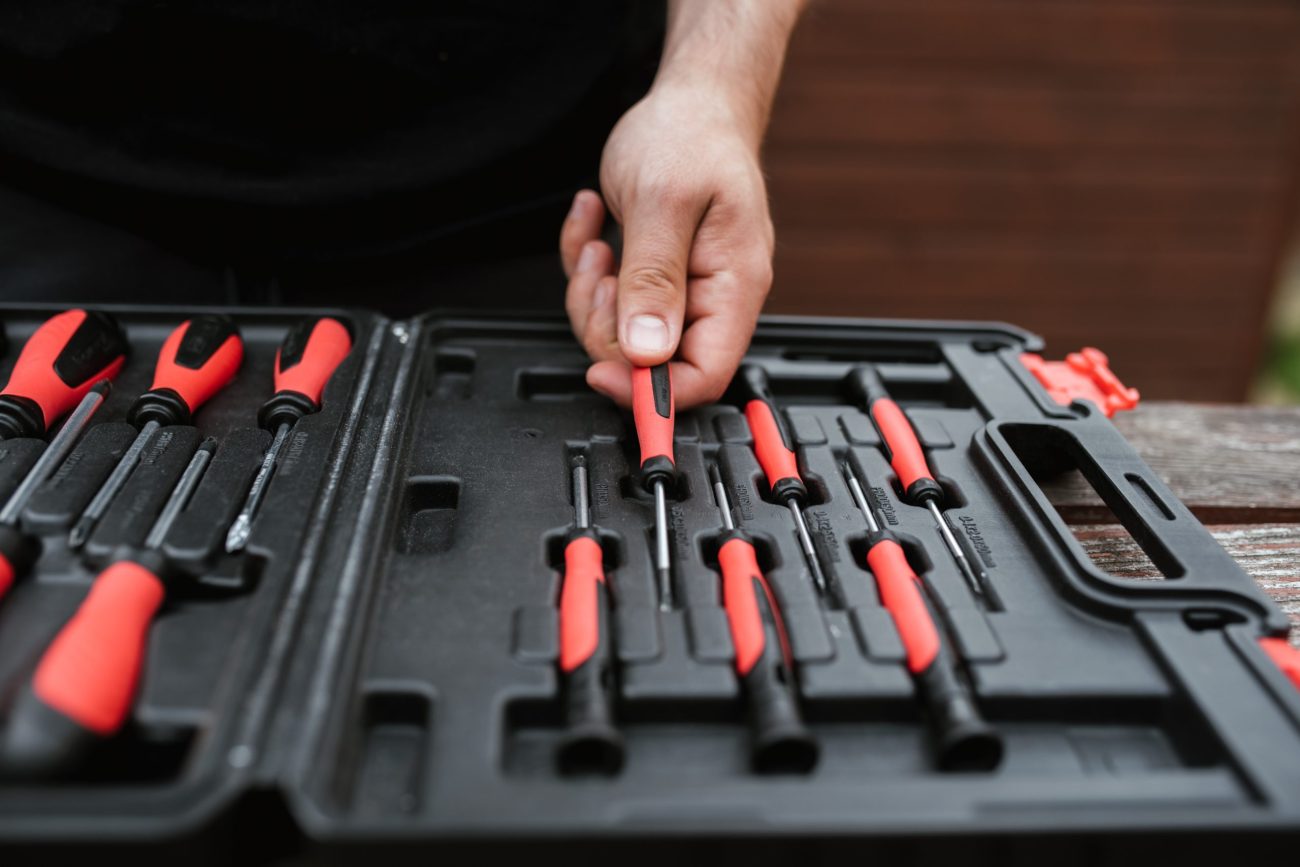If you’re living in a small home, condo, or apartment, you know that the challenge to stay organized and keep things tidy can be exacerbated by a smaller space. With less space for storage, less surfaces for clutter, and more common areas, it’s even more important to be strategic when it comes to organizing a tiny home. But small spaces come with their own benefits; buying a smaller home or condo means you might be able to afford a place closer to work, maximize time with family or friends, and save money. Smaller spaces also offer great opportunities for families or partners to connect. These organization tips for a small home can help maximize your space for a balanced, comfortable lifestyle.
How can I keep a small home organized?
Keeping a small home organized is all about creating good systems and habits. This way, when things get busy you can keep things tidy without needing to put in extra work. The organization systems you put in place—from furniture and shelving to message board and bins—will save you time and help you avoid a cluttered mess.
Home organization tips for a small home
Here are some organization tips for a small home to maximize the space you have.
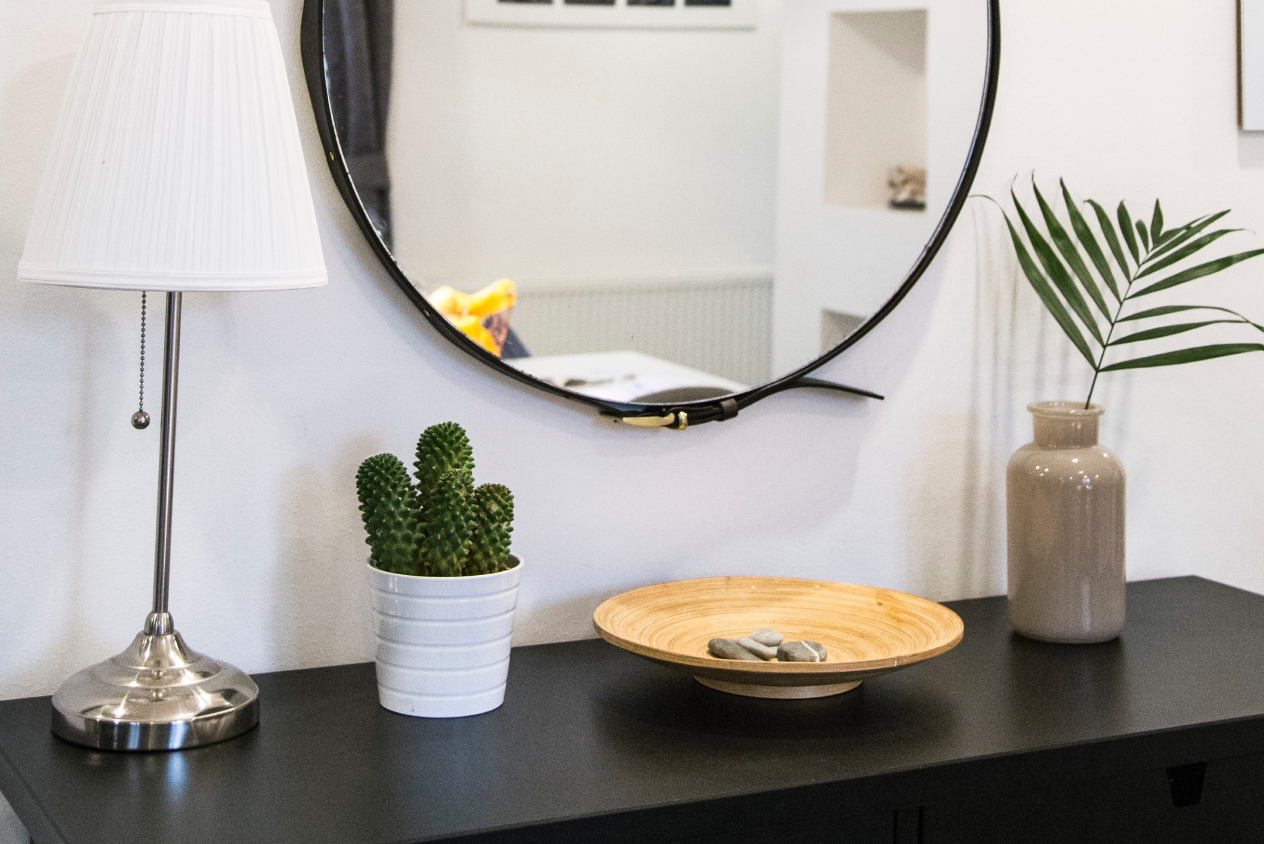
1. Use your front entrance wisely
The area by the front door is often subject to discarded jackets, shoes in a pile, or a mess of keys and mail. It’s the first place we think to deposit whatever we have in our arms when we walk in the door after a long day. Most small homes don’t have a foyer or separate space by the front door. A chest or stylish storage device by the door is a great way to keep aesthetic appeal and store things you’ll want near the entrance. Some storage cupboards have glass doors, room for bins, or extra drawers for hats, mittens, and slippers. A mirror with hooks will make the space feel bigger and offer storage. Consider choosing a designated spot where you always put your keys when you walk in the door. A small bowl or row of hooks is a great addition to a front entrance.
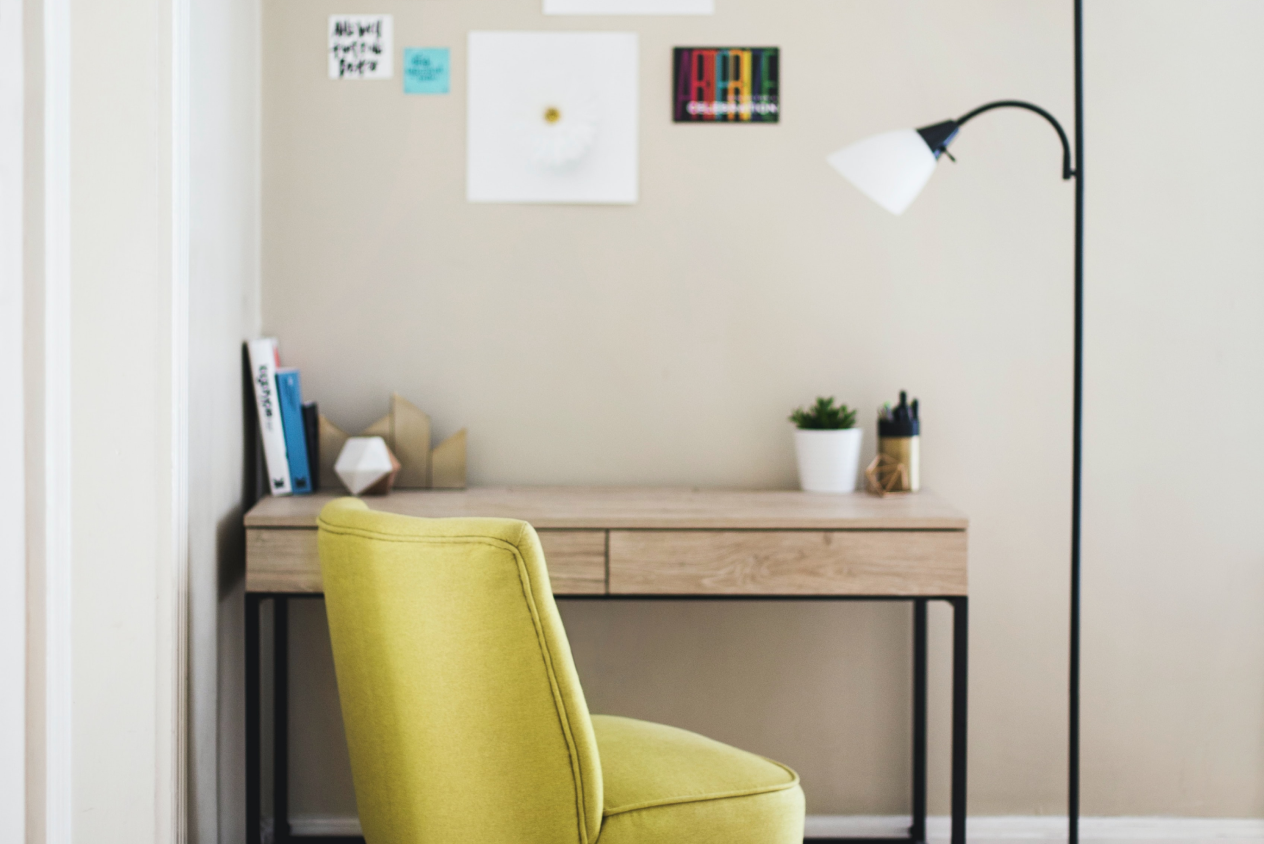
2. Designate space for each family member or activity
Whether you’re single, in a partnership, or living with kids, being intentional with the space you do have is important.
- Consider designating specific “work” or “leisure” zones if you’re working from home. It can be hard to relax in the chair that you just had a meeting in. If you don’t have a separate office, keep your desk and desk chair as a designated “work only” space, and protect other areas as zones to rest, be creative, or play in. This will help you mentally separate different activities and parts of the day. If you don’t separate rooms, this can help give the same effect.
- Designate crates, bins, or drawers as a space for each of your kids to deposit their belongings when they get home from school, so they know where their backpack, hat, and lunchbox go when they’re being stored for the evening. Some bins have clips where you can leave notes or reminders too.
- Keep pet litter boxes and toys somewhere far away from the kitchen, and in a place where visitors won’t see them. There are many attractive options for litter boxes, and pet toys but make sure Fido’s gear is all in one area so you can easily grab poop bags, a leash, and a bag of treats when you’re in a rush to take him for a walk.
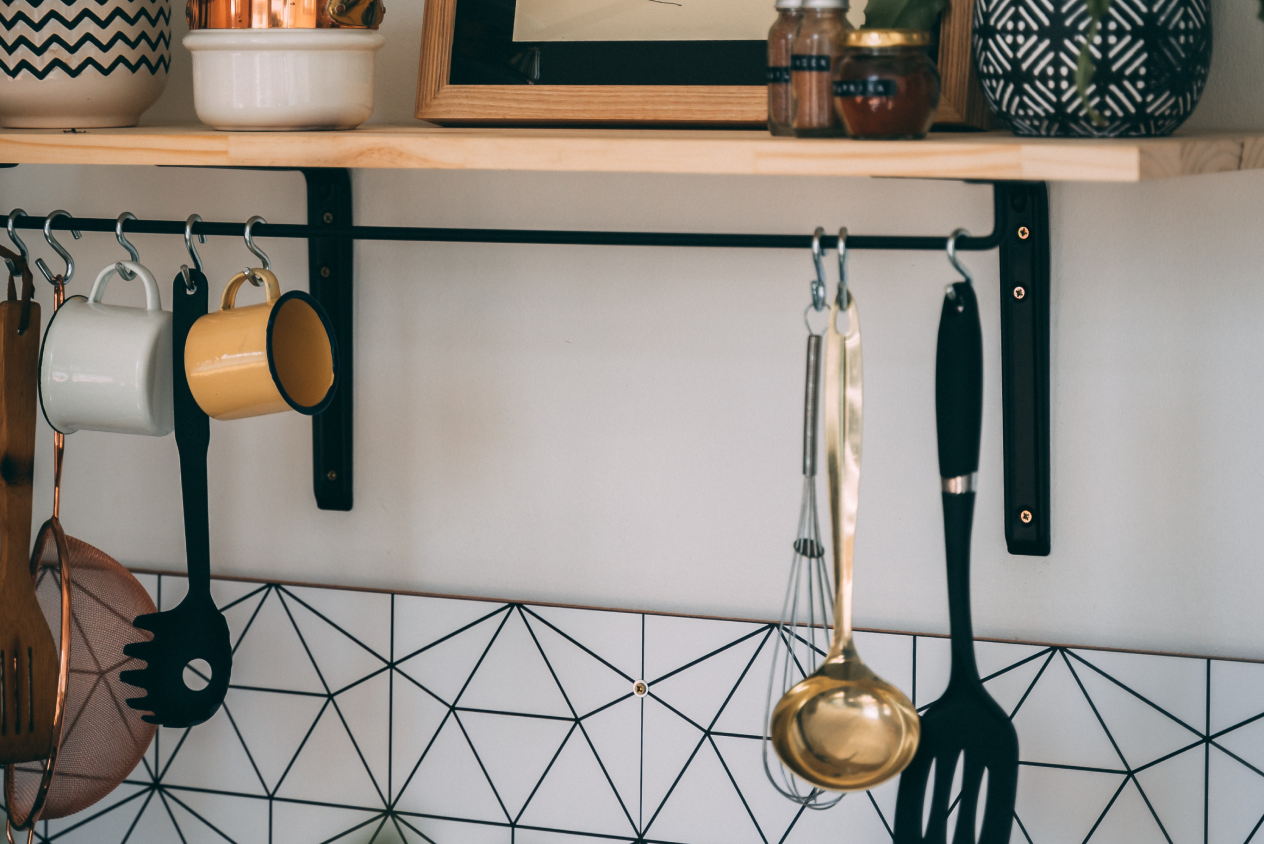
3. Get creative with storage
- The back of a door is a great, often underutilized place to hang a storage device with pockets for shoes, or for organizing small items that are typically misplaced.
- The area underneath the stairs is a great place to build a bookshelf, store shoes, or hang a reminder board for family chores.
- Use closets creatively; as an increasing number of Canadians work at home, a closet can become the perfect little office, a kids library, or a spot for you to meditate when you need some space from those you live with.
- Mount a pot rail in your kitchen to hang your pots on. You’ll free up drawer space and have easy access when cooking.
- Use shelf risers in kitchen and bathroom cupboards to get more out of your space.
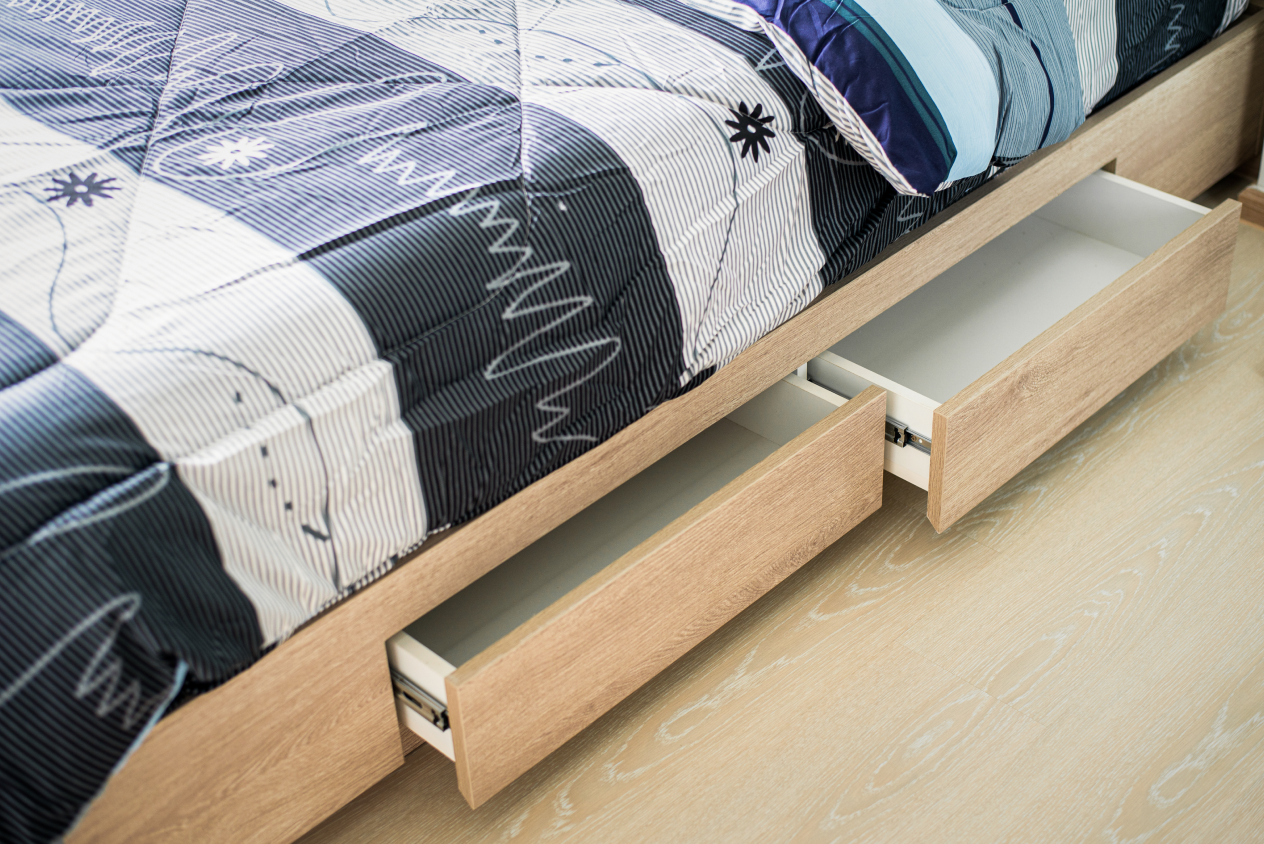
4. Multi-use items and furniture are your best friend
Maximize a small space with multi-use furniture items. If your furniture is versatile, you can quickly turn a guest room into an office, or a couch into a bed. When your furniture plays different parts, you gain the benefit of two rooms in one.
- Use floating, fold-away desks for a tiny office to give yourself more space when you aren’t using the room for work.
- Invest in a great pullout couch for guests, or a murphy bed that can disappear. If you don’t have room to spare for a guest bedroom this allows you to make use of every inch of your house.
- Consider a stool or ottoman that doubles as a storage bin for blankets, off-season items, or yoga mats.
- If you like to entertain, buy a small kitchen table with extendable leaves so you can pull it out when you have guests.
- Buy a lamp or nightstand that has additional shelving built in.
5. Build habits and skills to make organization a natural part of life
Once you’ve set up your shelving, organized your drawers, and designated space for each family member and activity, habits help maintain a tidy space. Setting up the right norms for your small space is personal and depends on your own lifestyle. Try setting an intentional habit of cleaning for 5 minutes after every meal, commit to one hamper where your clothes always go when you’re trying on outfits in a rush, or clean out the fridge every Friday afternoon.
If you have kids, teach them about organization and cleaning habits whenever you can. Introduce rules like the “one in, one out” rule; if they take a toy off the shelf, another one goes on the shelf. Or designate a 5-minute countdown when playtime is ending when they know the last minute will be spent collecting all the chaos into the bins you’ve labelled.
Houseful can help you navigate the homebuying process.
Let Houseful help you find a home that’s the right fit for you. Feel confident in your options with a tailored search experience based on the features and details you care about most. Our comprehensive experience lets you find the home that’s right for you.
Find more information on how to buy a home, how to sell your home, and mortgage and finance tips, see our Home Journey How-To’s or sign up at houseful.ca.
This article offers general information only and is not intended as legal, financial or other professional advice. A professional advisor should be consulted regarding your specific situation. While the information presented is believed to be factual and current, its accuracy is not guaranteed and it should not be regarded as a complete analysis of the subjects discussed. All expressions of opinion reflect the judgment of the author(s) as of the date of publication and are subject to change. No endorsement of any third parties or their advice, opinions, information, products or services is expressly given or implied by Royal Bank of Canada or its affiliates.
Browse the newest listings in your area
OJOHome Canada Ltd. (“Houseful”) is a wholly-owned subsidiary of Royal Bank of Canada
20 King Street West, 8th Floor
Toronto, ON, Canada, M5H 1C4
833-709-1946
IDX information is provided exclusively for consumers’ personal, non-commercial use and that it may not be used for any purpose other than to identify prospective properties consumers may be interested in purchasing. Information deemed reliable but not guaranteed to be accurate. Listing information updated daily.
Houseful is committed to ensuring accessibility for individuals with disabilities. We are continuously working to improve the accessibility of our web experience for everyone. We welcome feedback and accommodation requests, please submit them here.
The trademarks REALTOR®, REALTORS®, and the REALTOR® logo are controlled by The Canadian Real Estate Association (CREA) and identify real estate professionals who are members of CREA. The trademarks, Multiple Listing Service® and the associated logos are owned by CREA and identify the quality of services provided by real estate professionals who are members of CREA. Used under license.
Please use the following address to send referral payments:
Lockbox: OJOHome Canada Ltd. PO Box 9479, Stn A, Toronto, ON M5W 4E1
Lockbox Number: T09479C
® / ™ Trademark(s) of Royal Bank of Canada. Used under licence.

